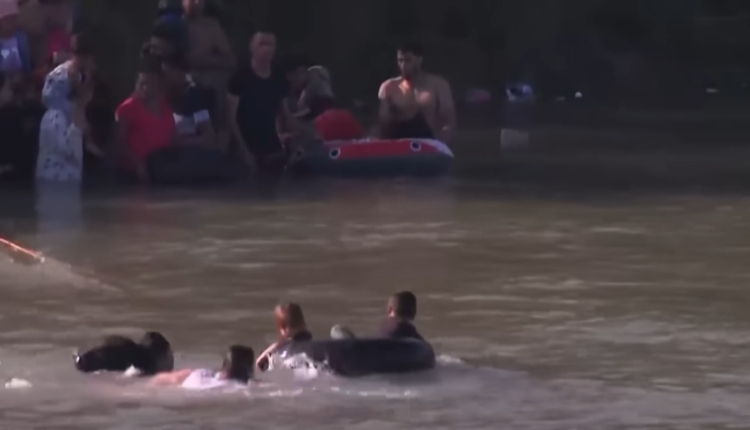Texas Refutes Allegations of Interference in Border Protection’s Response to Drowned Migrants
Texas is in turmoil as state officials deny allegations that law enforcement impeded Customs and Border Protection (CBP) agents from rescuing three drowning migrants in the Rio Grande.
The incident has further fueled an ongoing legal dispute between the state and the federal government over border authority.
The Department of Homeland Security (DHS) asserted that the Texas National Guard obstructed CBP agents from accessing a city park in Eagle Pass, Texas, where the distress call originated.
In response to the Mexican government’s call for help, DHS stated, “In responding to a distress call from the Mexican government, Border Patrol agents were physically barred by Texas officials from entering the park.” The DHS also criticized Texas Governor’s policies, calling them cruel, dangerous, and inhumane.
The bodies of the three drowned migrants, including a woman and two children, were recovered by Mexican authorities, marking a tragic outcome that prompted Rep. Henry Cuellar (D-Texas) to declare, “This is a tragedy, and the State bears responsibility.”
Texas Military Department’s Denial

The disputed access points along the Rio Grande, including Shelby Park and its boat ramp, have become flashpoints in the larger legal battle. The Department of Justice filed a court document warning that blocking federal access to the park could jeopardize the safety of migrants.
The filing argued, “Because Border Patrol can no longer access or view this stretch of the border, Texas has effectively prevented Border Patrol from monitoring the border to determine whether a migrant requires emergency aid.”
In response to these allegations, the Texas Military Department (TMD) released a statement denying any wrongdoing. The TMD acknowledged searching the river after CBP alerted them but asserted they found no distressed migrants.
The statement did not directly address the federal government’s claims of physical obstruction by Texas authorities.
As the feud over border jurisdiction escalates, the Department of Justice has taken the matter to the Supreme Court, seeking a resolution to the ongoing disagreement between federal and Texas authorities.
The incident underscores the complex challenges and tensions surrounding border control policies in the United States.

